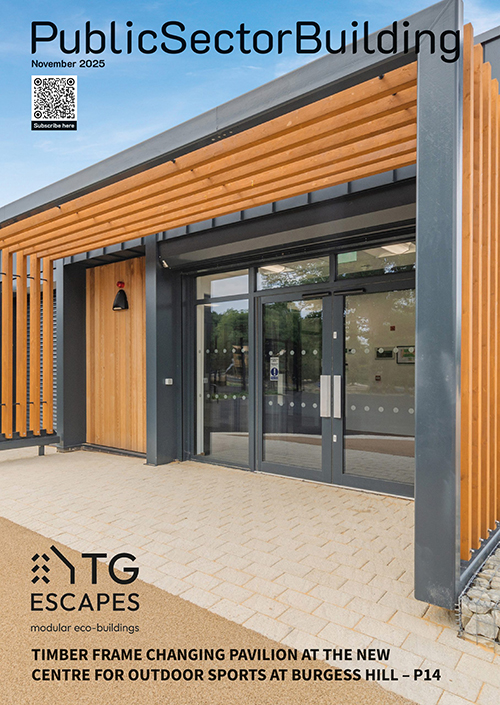 In May 2016, a year before the Grenfell Tower fire, Tim Vincent, Head of Technical at ROCKWOOL wrote an article for Buildingtalk (Stone wool insulation and fire safety in multi-storey buildings) where he explained how non-combustible stone wool insulation could meet fire safety challenges in cladding and rainscreen applications.
In May 2016, a year before the Grenfell Tower fire, Tim Vincent, Head of Technical at ROCKWOOL wrote an article for Buildingtalk (Stone wool insulation and fire safety in multi-storey buildings) where he explained how non-combustible stone wool insulation could meet fire safety challenges in cladding and rainscreen applications.
Below, he explains why, following the Grenfell Tower disaster, the focus on the combustibility of building materials, such as insulation and cladding, must bring an end to any industry confusion about ‘non-combustable’ materials.
Bringing clarity to fire safety
Back in July, the Government announced an independent review of building regulations and fire safety. A review that will deliver an interim report before the end of the year, and a final report no later than Spring 2018.
As we await these findings, it’s important and helpful to establish clarity in language and definitions, specifically, the terms non-combustible and combustible and how these apply to building materials, such as, insulation and cladding.
We can start with basic definitions. Here’s what the Oxford English Dictionary has to say:
Non-combustible: Made of material that does not burn if exposed to fire.
Combustible: Able to catch fire and burn easily.
But, how do these terms combustible and non-combustible relate to building materials?
Euroclass classifications
The European Reaction to Fire classification system (Euroclasses) is the EU harmonised standard for assessing the qualities of building materials in the event of exposure to fire. This standard is a legal requirement for CE marked construction products and relevant for both the United Kingdom and the Republic of Ireland.
As the name suggests, this classification system assesses and rates the ‘reaction to fire’ performance of construction products, providing a clear and simple method for comparing the performance of products when exposed to fire.
When products are tested according to the Euroclass system a range of factors are investigated: ignitability, flame spread, heat release, smoke production and propensity for producing flaming droplets/particles. The Euroclass system is accepted by all European Union States (and is mandatory where there is a Harmonised Product Standard) and includes seven classification levels, from A1 to F.
Understanding these Euroclass classifications is vitally important.
 The Euroclass system states that products achieving A1 classification are defined as non-combustible under these Regulations. Products achieving an A2 classification are recognised as products of limited combustibility, offering “no significant contribution to fire growth”.
The Euroclass system states that products achieving A1 classification are defined as non-combustible under these Regulations. Products achieving an A2 classification are recognised as products of limited combustibility, offering “no significant contribution to fire growth”.
Products achieving a rating of B-F are deemed to be combustible. Where a product has not been measured for fire safety under the Euroclass system then it will be classed as F, meaning no performance declared (NPD).
So, in short, non-combustible equals non-combustible.
Other terms typically used by the industry to describe product performance, such as, fire safe, fire proof, fire retardant or flame proof do not necessarily define that the product is non-combustible. ”Non-combustible” is a legally defined term within the Building Regulations.
So, how can you determine the Euroclass rating of a product’s combustibility?
In the case of thermal insulation, all products should be CE marked against the appropriate harmonised standard. The Harmonised Product Standard for mineral wool is BS EN 13162:2012.
Whichever harmonised standard is applicable, by law, all manufacturers must have their products independently tested to verify performance claims. Once a product has been CE marked, the manufacturer must make publicly available a Declaration of Performance (DoP). The DoP is a legal document in which the manufacturer identifies the product and its intended use, indicating compliance in relation to the relevant Harmonised Product Standard and performance in relation to specified “essential characteristics”.
It’s in the DoP that you can determine a product’s Euroclass rating. The declared value on the DoP will match one of the Euroclasses. For ROCKWOOL stone wool insulation, you will find an A1 rating, meaning non-combustible.
How do we ensure a high rise building is compliant?
So, how is this information of use when considering building products?
When we consider the fact that more than 95% of buildings screened and covered by the recent Government BS8414 testing program failed to meet current fire safety standards, it’s clear that ambiguity, complexity, and confusion exists. This leaves many people asking, “is there a simple way to ensure a high rise building is compliant?”.
An “obvious solution” was stated by the DCLG on the 2nd August in their Advice to Landlords: “to ensure that the cladding system adequately resists external fire spread…replace the system with one where all of the elements of the wall are of limited combustibility. For example, a wall system which includes an ACM panel with limited combustibility filler (category 1) and limited combustibility insulation, such as, stone wool. “
ROCKWOOL stone wool insulation withstands temperatures of up to 1000°C and has achieved the highest possible Euroclass rating: A1 non-combustible. With minimal organic content, ROCKWOOL stone wool insulation will not produce any significant toxic smoke. The ROCKWOOL RAINSCREEN DUOSLAB®, designed and manufactured specifically for this kind of application, is already an established choice within the market and installed on many high rise projects.
Complementing the ROCKWOOL RAINSCREEN DUOSLAB is the ROCKPANEL FS-Xtra exterior cladding panel, also manufactured from stone wool. The ROCKPANEL FS-Xtra boards are designed to be applied on top of a steel or aluminium supporting structure and fixed with blind rivets. They meet the requirements for Euroclass A2-s1, d0 and are, therefore, classed as “of limited combustibility”. Design is not compromised with FS-Xtra as it is available in a variety of vibrant colour and texture finishes.
Combining both ROCKWOOL RAINSCREEEN DUOSLAB and ROCKPANEL FS-Xtra in one solution meets the DCLGs guidance highlighted earlier. The combination provides vital fire protection for buildings in a solution designed to remain stable, slow the spread of flames and help protect the building’s load-bearing structure, buying valuable time for occupants to safely escape the building. ROCKWOOL and ROCKPANEL are both part of the ROCKWOOL Group.
More guidance on design of fire safe external wall systems
For more information ROCKWOOL has developed a selection of supporting material to provide further guidance on the design of fire safe external wall systems in buildings above 18 metres.For more information, visit www.rockwool.co.uk . Here you can find out specific information on Euroclass ratings, download Routes to Compliance in High Rise Buildings over 18 metres – Designing Out the Risk or schedule a RIBA Approved CPD Seminar session with ROCKWOOL.
Editor’s Note:
Read the article on Buildingtalk, written by Tim Vincent a year before the Grenfell Tower disaster (Stone wool insulation and fire safety in multi-storey buildings) where he expressed concerns about the role of non-combustible stone wool insulation in meeting fire safety challenges of cladding and rainscreen insulation.




